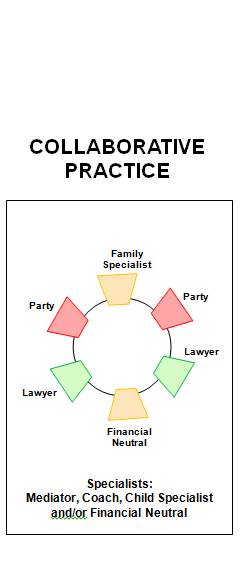Preserve Relationships
Friday, 9 December, 2016
Preserving Your Relationships with Collaborative Practice
Read moreChristmas Holiday Time with the Children
Monday, 5 December, 2016

With the festive season upon us, you may be thinking of your children and the care arrangement options available to you for Christmas Day and the holiday period. There are no hard and fast rules when it comes to children’s care arrangements as a variety of factors can influence a decision made by a Judge but there are some orders that are more common than others which tend to occur in the majority of family law matters.
Read moreFamily Law and Social Media
Friday, 25 November, 2016
In recent times, people have become heavily dependent on social media as a form of communication and as an avenue to publicly voice their opinion. In family law proceedings, it is common for parties to use social media, including Facebook, Instagram, and Twitter, to vent their resentment against a former partner or their frustration with the family court process. What most people are unaware of is that section 121 of the Family Law Act 1975 provides it is a punishable offence for a person to publish or disseminate to the public any account of proceedings that identifies a party to or related to the proceedings.
Read moreHow is Collaborative Practice different from Litigation?
Thursday, 24 November, 2016

Collaborative Practice is a process which resolves conflict without going to court.
Read moreWhat financial information do I need to give my ex-partner?
Wednesday, 16 November, 2016
Each party to a family law dispute is required to provide to each other party all information relevant to an issue in the case.
Read moreThe Disqualification Clause
Wednesday, 12 October, 2016
The provision in the Collaborative Practice Agreement that provides that if the collaborative process breaks down or is ended for any reason the lawyers are disqualified from representing either party in litigation is what makes collaborative practice different from mediation, lawyer negotiation or other alternate dispute resolution processes.
Read moreWhat Should I Tell the School?
Monday, 10 October, 2016
Keeping your children safe, happy and healthy during separation is a priority. It is a traumatic time both for the parents and any children and it is important to consider what can be done to make the time less stressful.
Read moreWhat Is Collaborative Practice
Wednesday, 24 August, 2016
Collaborative Practice is a way to create a settlement climate deliberately. This is done by removing the trial aspects from consideration. Collaborative lawyers agree to take cases, on a case by case basis, for settlement only.
Read moreMy Former Partner Is Not An Australian Resident; How Can This Affect My Child?
Wednesday, 20 July, 2016

International family law matters have been in the news recently with the alleged child abduction scandal involving Australian mother Sally Faulkner and the 60 Minutes program in Lebanon.
Read moreWhen Does A De Facto Relationship Begin And End?
Thursday, 30 June, 2016
The definition of a de facto relationship is found in s.4AA of the Family Law Act. The Act sets out a number of factors for the Court to consider when determining if the persons are in a de facto relationship.
Read more